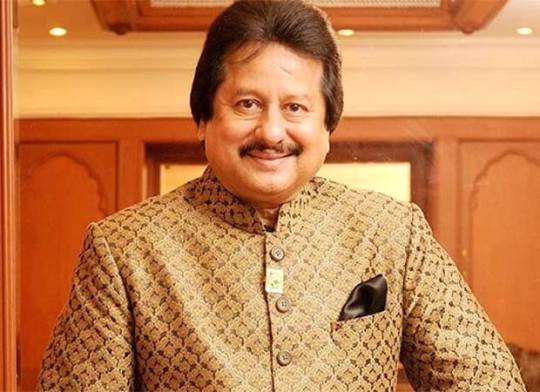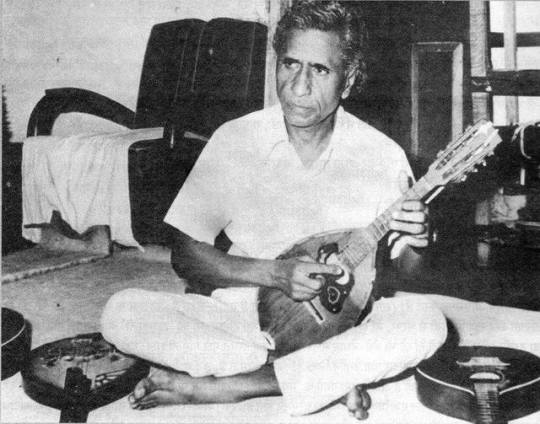#Pankaj Udhas Death
Text
0 notes
Text
Ghazal singer Pankaj Udhas’ last rites to be held in Mumbai on February 27, confirms daughter Nayaab Udhas
The last rites will be conducted on February 27 in Mumbai.
Veteran ghazal singer Pankaj Udhas passed away at age 72. After a prolonged illness, the singer breathed his last on February 26, as confirmed by his daughter Nayaab Udhas. The singer was undergoing pancreatic cancer treatment. He died around 11 am at the Breach Candy Hospital on Monday. The last rites will be conducted on February 27 in Mumbai.

A statement shared by Udhas’ daughter Nayaab Udhas on her Instagram read, “In loving memory of Padmashri Pankaj Udhas. With a very heavy heart, we are saddened to inform you of his demise on the 26 of February 2024 due to a prolonged illness. The funeral will take place on Tuesday, February 27, from 3 to 5 pm. Venue: Hindu Crematorium. Worli (Mumbai) Landmark Opp. Four Seasons: Dr E Muses Rd. Worli. The Udhas Family.”
Known as one of the finest ghazal singers in India, Pankaj Udhas was born on May 17, 1951, in Gujarat. He was widely acclaimed for his ghazals and his soulful renditions. Udhas rose to prominence in the 1980s and 1990s and became one of the most popular ghazal singers in India. His rich, melodious voice and emotive performances have earned him a large and devoted fan base both in India and abroad.
Some of Pankaj Udhas' most famous ghazals include ‘Chitthi Aayi Hai’, ‘Aur Aahista Kijiye Baatein’, ‘Chandi Jaisa Rang Hai Tera’, and ‘Na Kajre Ki Dhar’ among others. He released numerous albums over the years and collaborated with other notable artists in the Indian music industry.
Udhas received several awards and accolades for his contributions to music, including the Padma Shri, one of India's highest civilian honours, awarded to him in 2006 for his achievements in the field of art.
0 notes
Text
Legendary singer Pankaj Udhas, who gave memorable hits like 'Chitthi aayi hai', died after a prolonged illness in Mumbai, his family confirmed today. He was 72.
4 notes
·
View notes
Link
1 note
·
View note
Text
#PankajUdhas#PankajUdhasDeath#bollywood#gazal#singer#PMModi#SonuNigam#SocialMedia#instagram#entertainment#entertainmentnews#bollywoodnews#hindinews
0 notes
Text
0 notes
Text
Ghungroo Song From War: It’s A Party Song With Hrithik Roshan And Vaani Kapoor; There Is Also A Twist With An Old Ghazal Song

Most of the people have been waiting for the release of Hrithik Roshan and Tiger Shroff starrer War that is scheduled to hit the theatres on 2nd October. It is expected to be one of the big budgeted action thrillers of the year. Some death defying stunts will be seen in this movie too. Now, first romantic song from the movie War has come out starring Hrithik Roshan and beautiful Vaani Kapoor. The song is titled ‘Gungroo’ and it can be seen on YouTube already. Hearing the song, you will surely like it.
In the very beginning of the song, you can see gorgeous Vaani Kapoor with perfectly fit body in a swimsuit. Picturesque location can be seen in the backdrop. Hrithik can be observed in a floral shirt. It is a delightful scene. Chemistry between Hrithik and Vaani Kapoor is quite awesome here. The song is refreshing too. In some part of the song, Vaani Kapoor has showing off her dancing skills alone also. Both of them have burned the dance floors on the occasion.
Shilpa Rao and Arijit Singh have crooned the song. Composition of the song ‘Ghungroo’ has been made by Vishal and Shekhar. Visual appeal of the song cannot be denied here. In the song, some hint of an old ghazal song by Pankaj Udhas titled ‘Ghungroo Toot Gaye’ can be found too. Reaction to the song has been positive so far. A dance off between Hrithik and Tiger will be seen in the movie for which we have been waiting vey eagerly. Siddharth Anand is the director of the movie.
Reference Link: https://youtu.be/qFkNATtc3mc
0 notes
Photo

Tributes to Sajjad Hussain, the enigmatic genius of Hindi cine music world, on his 22nd death anniversary.
Sajjad Hussain was born in 1917 in the Sitamau, which was at that time, a village in the then Central India Agency, now called Madhya Pradesh, India . As a child, he was taught sitar by his father Mohammed Amir Khan. He learned veena, violin, flute and piano during his teenager years. He was also an accomplished mandolin player, and could play Indian classical music on the instrument.
In 1937, Sajjad Hussain decided to try his luck as a film score composer, and came to Bombay with his elder brother Nisar Hussain. His first job was at Sohrab Modi's Minerva Movietone at Rs. 30 a month. He later moved to the Wadia Movietone, working at Rs. 60 a month. During the next few years, he worked as an assistant to music composer Meer Saheb and Rafiq Ghaznavi, and as a contract player for Shaukat Hussain Rizvi.
In the early 1940s, Sajjad was introduced to the composer Ali Baksh (father of the actress Meena Kumari) by a friend. Impressed with Sajjad's mandolin skills, Ali employed him as an assistant.
Sometime later, Sajjad became an assistant to the music director Hanuman Prasad. In this capacity, he composed two songs for the film Gaali (1944): Aag Lage Saavan Mein and Ab Aaja Dil Na Lage (both sung by Nirmala Devi). The songs of Dost (1944), his first film as an independent music director, were hit. These songs included three songs sung by Noor Jehan: Koi Prem Ka Deke Sandesa, Alam Par Alam Aur Sitam Par Sitam and Badnaam Mohabbat Kaun Kare.
Sajjad went on to work with many notable singers, including Suraiyya, Lata Mangeshkar and Asha Bhosle. He was regarded highly by his contemporaries, including Anil Biswas. One of the best scores that Sajjad Hussain created was in the film 'Rustam Sohrab (1963)' in which Suraiyya sang 'Ye kaisi ajab dastan ho gayi hai', Lata Mangeshkar's one of the most favourite songs 'Ae dilruba' and 'Phir tumhari yaad aayi ae sanam' by Mohammed Rafi, Talat Mahmood and Manna Dey were appreciated. In a 2012 interview, Lata Mangeshkar named him as her favourite composer.
Sajjad Hussain was known for his contentious personality. He often landed in controversies due to his short temper, outspokenness, moody behaviour and perfectionist nature. When Shaukat Hussain Rizvi gave the credit for the musical success of Dosti (1944) to his wife and singer Noor Jehan, Sajjad vowed never to compose a song for Noor Jehan. He had conflicts with the lyricist D. N. Madhok during recording of film Saiyyan (1951), and with the actor Dilip Kumar during the recording of film Sangdil (1952). He made disapproving remarks on Lata Mangeshkar's singing, leading to differences between the two for a short period. He called Talat Mahmood as "Galat Mehmood" (Wrong Mehmood) and Kishore Kumar as "Shor Kumar" (Noisy Kumar), and also criticised Naushad's music. He rejected an offer by Shashadhar Mukherjee of Filmistan, and lost the opportunity to compose music for film Mughal-e-Azam (1960) due to differences with film producer-director K. Asif. Once, heavily impressed by Sajjad Hussain's Yeh hawa yeh raat yeh chandni (Sangdil), the composer Madan Mohan created Tujhe kya sunau mein dilruba (Aakri Dao) on the same metre. At a concert when Madan Mohan walked past Sajjad, the hot tempered Sajjad taunted "Aaj kal toh parchaiyyan bhi ghoomne phirne lagi hai" ("Even shadows are moving around now"). Hindi film expert Rajesh Subramanian explains that such comments made him an avoidable character and people from the industry started ignoring him. As a result of his controversial behaviour, Sajjad got less than 20 film score assignments in his 34-year-long music career. However, one notable milestone in his career as music Director is songs he composed for Sri Lankan Sinhala film "Daiwa yogaya-1959". Daiwa Yogaya was filmed in Prasad Studios in Pune and was a box office hit in Sri Lanka mainly owing to the songs he composed. His last film as a composer was Aakhri Sajda (1977), although he participated in concerts till the 1980s.
Sajjad Hussain lived in the Natalwala Building at Mahim in the last years of his life. He had five sons and one daughter. All five of his sons (Mustafa, Yusuf, Noor Mohammad, Nasir Ahmmad and Abdul Karim) went on to become musicians. He died in 1995 in oblivion: Khayyam and Pankaj Udhas were the only notable film personalities to attend his funeral.
Like बॉलीवुड डायरेक्ट Bollywoodirect
0 notes